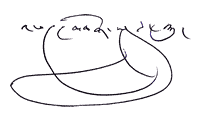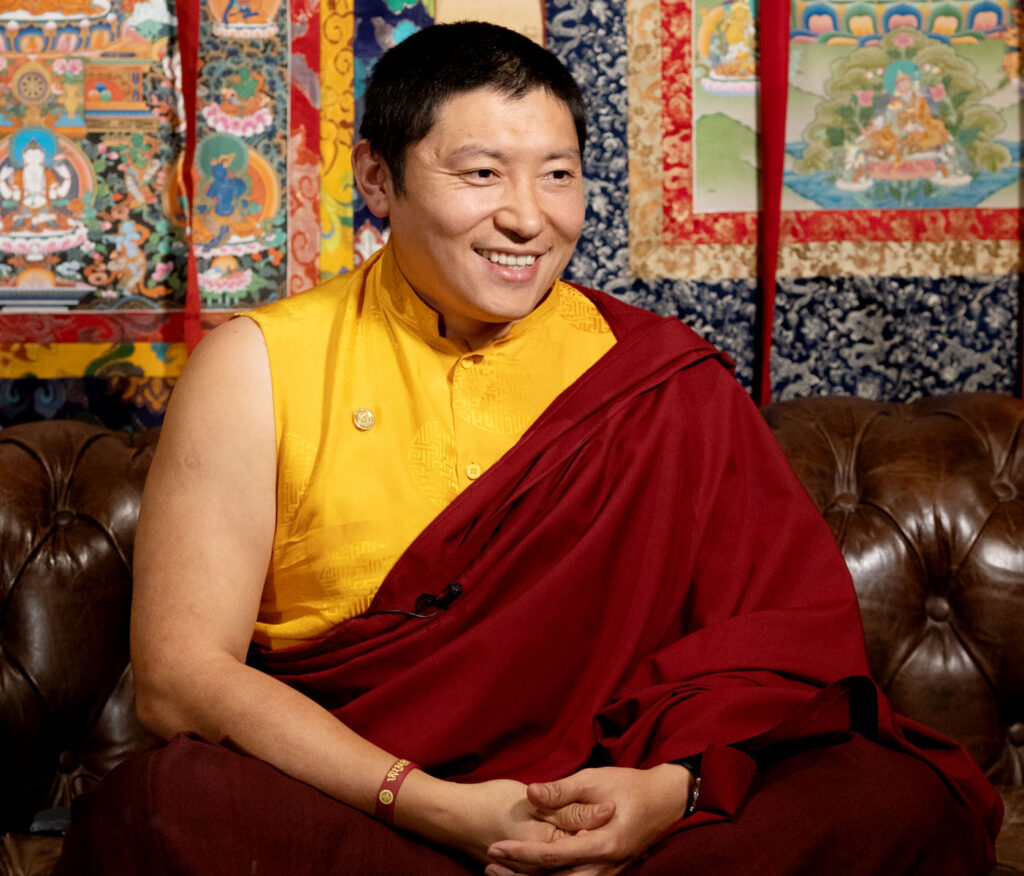Dear friends near and far
I hope you have all been healthy and truly happy this past month. As many of you probably know, the previous month in the Tibetan calendar was Saga Dawa, which is regarded as an especially blessed time. Marking the anniversary of both the enlightenment and parinirvana of Buddha Shakyamuni, it is said that the effects of the deeds you perform during this month are multiplied and for that reason, the importance of practice is emphasized. During this month, at the blessed Boudhanath stupa and other sacred Buddhist places, it was inspiring to witness the stream of devoted pilgrims and practitioners performing prostrations around the stupa, making circumambulations, offering butter lamps, and making aspirations that continued day and night without break.
Inspired by this special month and anniversary, I would like to share with you a short excerpt from a text entitled The Sage Who Dispels the Mind’s Anguish by the late Dilgo Khyentsé Rinpoche. In this short, pithy text Rinpoche explains the practices of shamata and vipashyana based on Buddha Shakyamuni. Towards the end of the text, Rinpoche quotes from the Wisdom of Passing Sutra and explains:
Likewise, all of these phenomena, such as death, have no established identity whatsoever, yet like illusory appearances their expression is completely unobstructed. When analyzed they cannot be expressed whatsoever in terms of the extremes of existence and non-existence. They are naturally non-conceptual and luminous. Therefore, one’s own mind that does not abide as any entity or non-conceptual thing whatsoever is primordially luminous; in the state of the present direct awareness all phenomena of samsara and nirvana are totally equal. Therefore, resolve the enlightened mind of the Teacher, Lord of Sages (Buddha Shakyamuni), and one’s own mind as well to be indivisible in the nature of mind, the state of self-existing wakefulness. If without getting distracted from that state you come to possess confidence and develop certainty in it, that is the realization of the true nature of one’s mind. Other than that there is no so-called ‘buddha’ whatsoever.
In that state, there is no death and birth. Death and so forth are mere concepts; in the truth of the innate nature of mind free from concepts, birth and death are not in any way established. If one passes away resting evenly in that state, you will be reborn in a buddhafield without the deluded appearances of the intermediate state and so forth occurring.
If you do not have that level of confidence, but at the time of death and all throughout the intermediate state remember only the Guru, Lord of Sages, and do not forget, simply through that you will be led to a pure realm. Moreover, no matter what terror and suffering you encounter in this life, if you remember the Buddha you will definitely be liberated from those difficulties. No matter what happiness and excellence you may encounter know it to be the great kindness of the Buddha, and visualizing those pleasurable objects as a Samantabhadra offering cloud offer them to the Buddha.
Constantly reflect on the three liberations taught by the Teacher, and the meaning of the six paramitas and so forth. With great compassion for all sentient beings arouse the mind of supreme enlightenment and train as much as you are able in the conduct of the bodhisattvas. Recalling the Teacher like this is extremely important, for recalling the Buddha is that which sets one out on the beginning of all the bodhisattva paths and has immeasurable benefits. It generates all the excellent qualities of the path.
These days when most people hold the practices of their own school to be the most important, there are only a few people who consider the Teacher, Lord of Sages, as especially important. However, those who have entered into these teachings yet lack the faith and trust that regards the Teacher as supreme lack intelligence. Why is that? Because it is solely due to the compassion of the Teacher demonstrating the acts of the Buddha in this realm and time to us wandering beings of the degenerate age that the teachings—the three pitakas, and not only that, but all the way up to the teachings of the secret mantra Vajrayana, the path that can actualize in one short lifetime of this degenerate age the unified state of no-more learning—appeared. It is also solely due to his compassion that the beings who are the holders of the teachings, those who have entered the teachings of sutra and mantra, the sangha of noble beings as many as they are, appeared.
If the Teacher had not radiated out the light of the teachings here in this realm and time, we would not hear even the name of the three jewels. What need to speak then of being able to practice the paths of sutra and mantra? That being so, whichever tradition one practices, whether it be the New Schools or the Old School, to have intense faith that acknowledges the Teacher as especially important is indispensable at all times. Therefore, one must be especially devoted to the Teacher and persevere in that practice!
—Dilgo Khyentsé Rinpoche, The Sage Who Dispels the Mind’s Anguish
Keeping these profound and important instructions in mind, I hope you can find the time this month to joyfully engage in the three wheels Buddha taught his followers: the wheel of study and reflection, the wheel of relinquishing the afflictions through meditation, and the wheel of benefiting others through actions.
With constant prayers and aspirations and the best of wishes.
Sarva Mangalam,

Phakchok Rinpoche






Responses